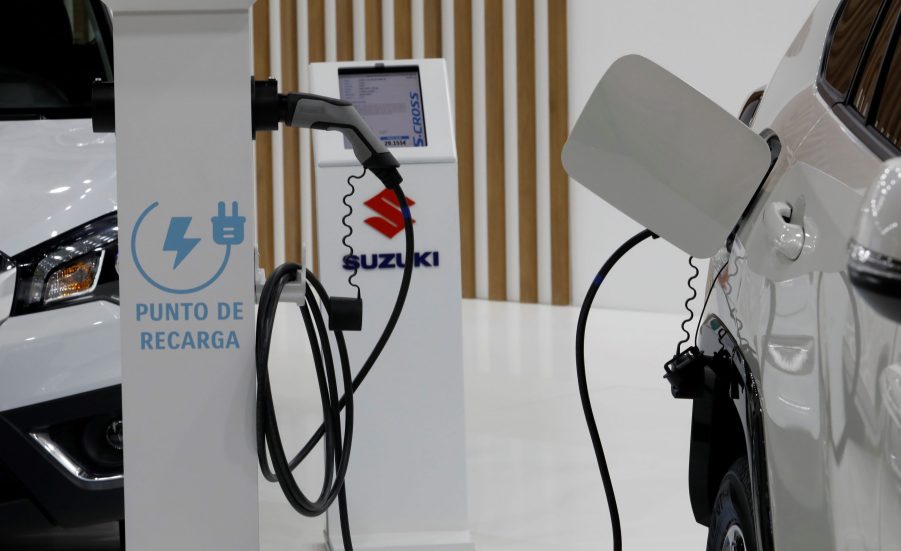
Do EVs Emit Any Dangerous Fumes, Vapors, or Byproducts?
The EV movement began because many consumers wanted a cleaner, more environmentally friendly option for transportation. Cutting back on unnecessary fumes, carbon emissions, and waste can have lasting effects on nature. And everyone knows just how toxic gas-powered cars can be.
As the automotive industry transitions to a more hybrid and EV-focused commitment, some question just how green electric vehicles are. Do electric vehicles create any adverse effects on humans or nature? Are there any potentially hazardous byproducts consumers should know about before they buy?
Gas-powered cars produce dangerous fumes

It’s not a secret that traditional combustion engines produce harmful emissions and fumes toxic to humans. Carbon monoxide is equally detrimental as a pollutant in the environment. Smog and air quality, especially in metropolitan areas, continues to be a problem, resulting from the increased emissions over decades of gas-powered travel. And don’t underestimate the noise pollution from those beefy engines, either.
In terms of car safety, traditional fuel-powered cars can be deadly based on fumes alone. Unfortunately, many tragic deaths occur every year from running combustion cars in an enclosed garage or space for just a few minutes. This Quora thread shares helplines if you or someone you know needs assistance.
Are EVs as clean and green as everyone says?
It’s generally understood and believed that EVs offer cleaner, less harmful solutions to travel. So yes, EVs are cleaner than traditional combustion engine vehicles. But as Air Quality News shares, there are other potential concerns regarding EVs and car safety, including possible risks associated with spontaneous EV fires. In addition, batteries may not produce emissions and fumes, but they can deteriorate and become harmful, or in some cases, become a shock hazard or leak.
It’s perfectly safe to park your EV in an enclosed garage running, without risk of toxic suffocation, as Buy EV Cars suggests. However, it is essential to remember this does not include hybrid variations. Hybrids still use gas partially. They can still produce hazardous byproducts and deadly fumes. So, if you opt for a hybrid variation, you’ll need to be mindful to avoid enclosed surroundings during operation.
There are inherent benefits to choosing an EV over a gas-powered ride. Reduced air pollution, noise pollution, and eco-friendly transportation aside, some critics suggest EVs aren’t as green and nature-loving as you might assume. And there are growing concerns about what it takes to make an EV that might cancel all of its enviro-friendly features.
EV production may draw criticism
In the past few years and even today, there continue to be some critics of the EV evolution. Sure, electric power is less harmful in terms of emissions. But the energy required to produce the batteries for these vehicles could make the total eco-footprint of the EV even worse than its fuel-powered rivals. Then there is the argument suggesting the production and development of the charging station infrastructure would have enough adverse effects to be counterintuitive to the clean EV. And shipping all those parts means leveraging a gas-powered supply chain. But Fast Company says those notions have been in part disproven and shouldn’t dissuade anyone from buying an EV.
Before you join the EV community of vehicle owners, make sure you ask the right questions of yourself and your dealer, as Cazoo suggests. Know your charging stations locally and understand how your lifestyle will change centered on charging and not gas stations. And know that even though you’ll be buying a more environmentally friendly ride, it doesn’t mean there still won’t be certain risks with the battery life.


